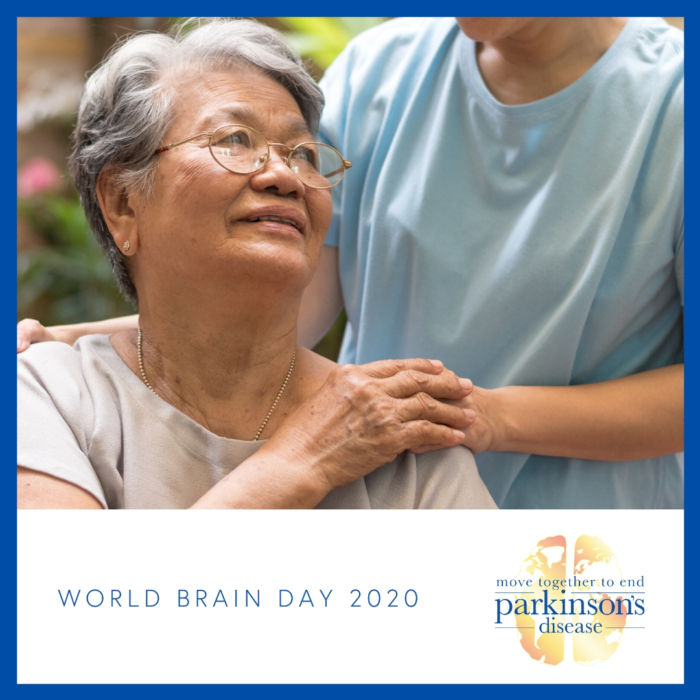World Brain Day Spotlights Parkinson’s Disease
July 22, 2020
This year’s World Brain Day unites advocates in highlighting a disease that devastates families and communities across the globe: Parkinson’s.

In Parkinson’s patients, brain cells that make the naturally occurring chemical dopamine stop working. The progressive neurological disease causes tremor, stiffness and difficulty moving or balancing. It affects impacts 7-10 million people worldwide, limiting patients’ self-sufficiency and often introducing a significant burden on family and caregivers.
While Parkinson’s has no cure, new medications continue to improve quality of life for patients. Most recently, the U.S. Food and Drug Administration approved a new medication to reduce “off” periods – times when Parkinson’s symptoms break through despite treatment. Earlier this year, the FDA approved a separate adjunct medication that extends “on” periods, prolonging medication’s beneficial effect for patients.
Parkinson’s patients have faced new challenges with the onset of the global COVID-19 pandemic. In some cases, patients may feel uncomfortable visiting medical centers for treatment. In other instances, clinics’ reduced staff or limited hours may introduce logistical barriers to care.
Apart from receiving treatment, COVID-19 also increases the isolation that many Parkinson’s patients experience. Public policies that restrict social gatherings or limit business operations can reduce viral spread, but they also limit Parkinson’s patients contact with friends, family or neighbors. This may compound the isolation that some patients already feel due to their restricted movement or challenges going out on their own.
Organizations such as the Movement Disorders Policy Coalition have worked to raise awareness about the mental health implications of living with Parkinson’s, highlighting ways to stay connected even during quarantine.
Beyond managing the near-term implications of Parkinson’s in the era of COVID-19, World Brain Day looks to the future. The effort encourages improved access for patients, as well as ongoing research to identify the root cause and progression of the disease.
Continued awareness efforts, vibrant research and committed advocacy can move the global patient community closer to World Brain Day’s ultimate goal – ending Parkinson’s disease.
Tags: NeurologicalCategorized in: Blog

